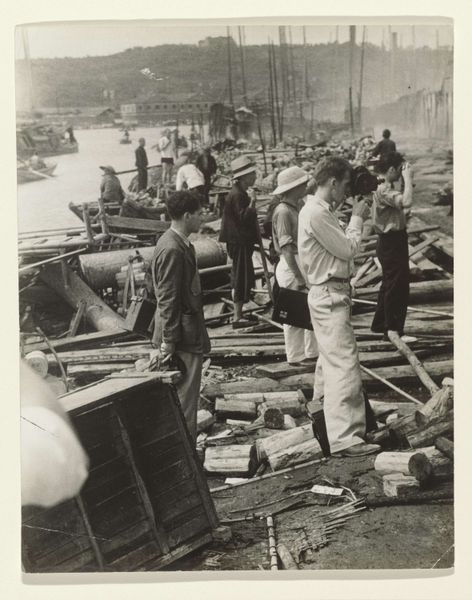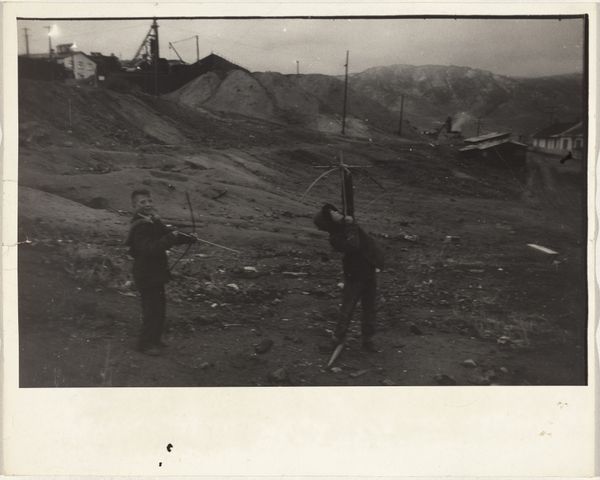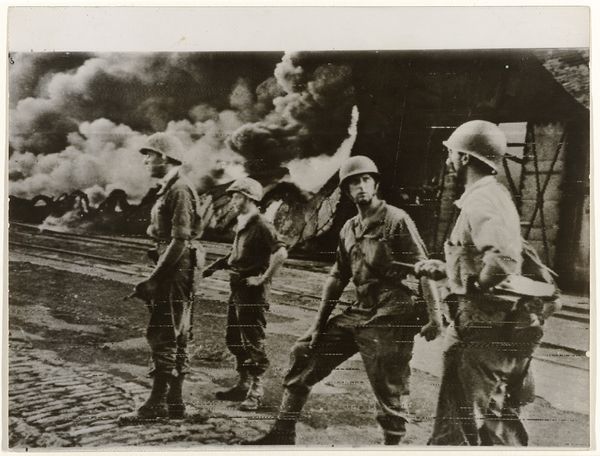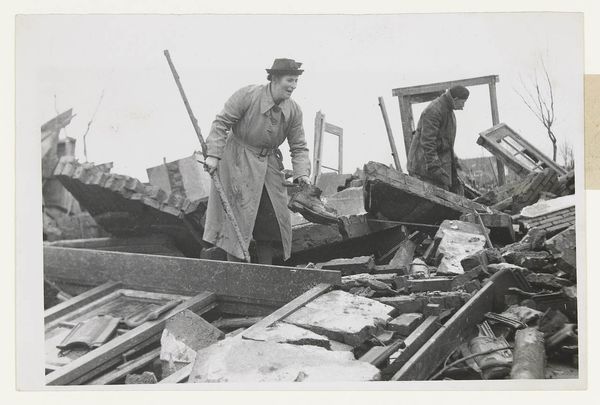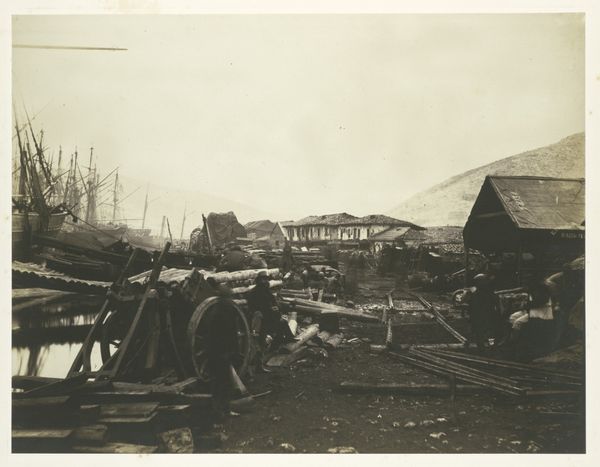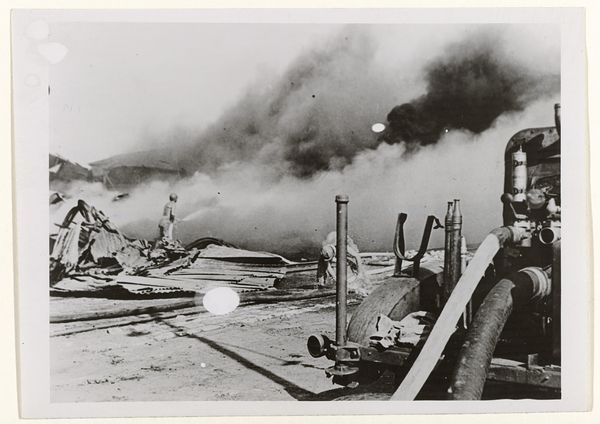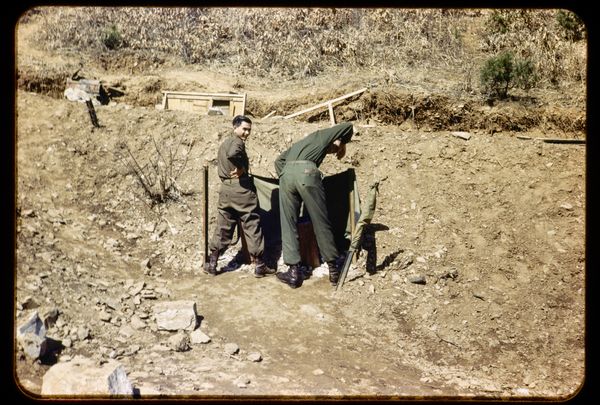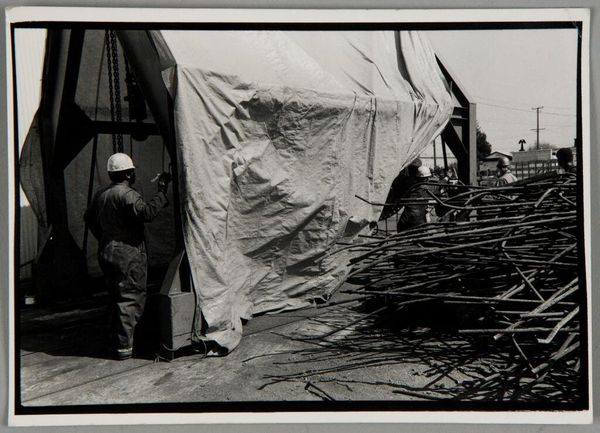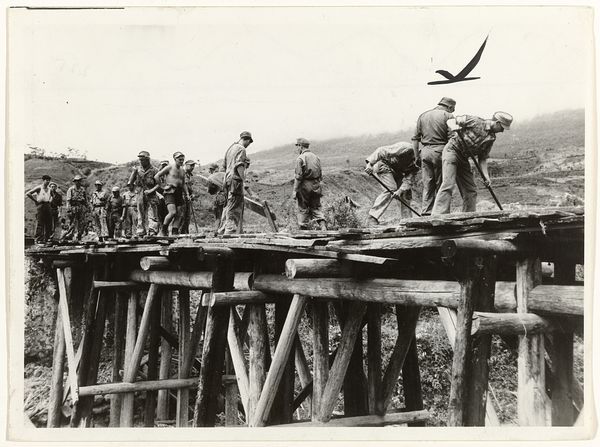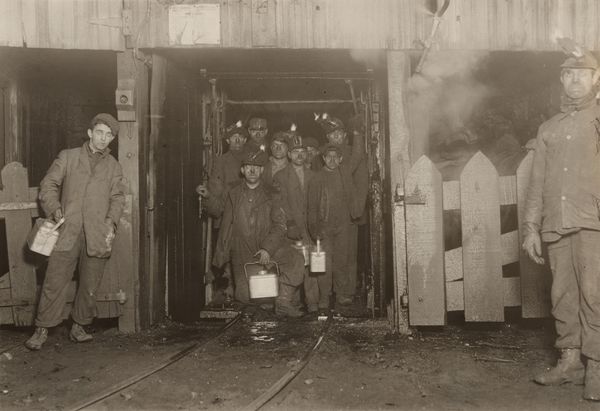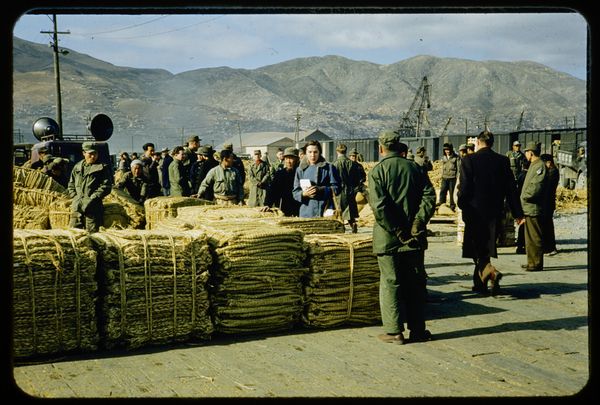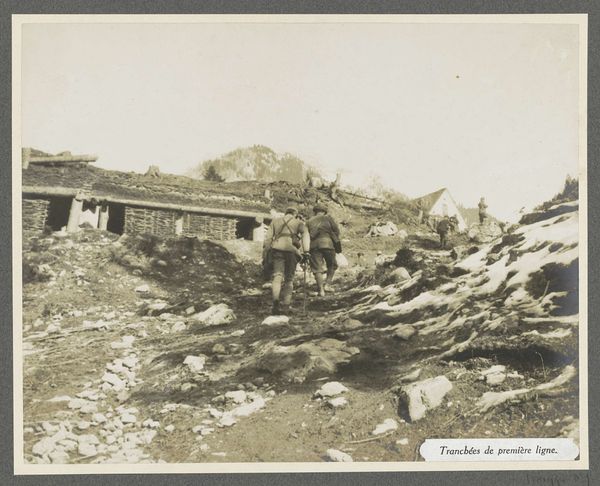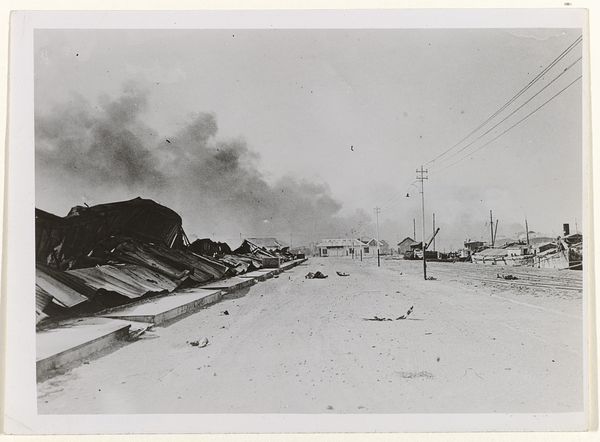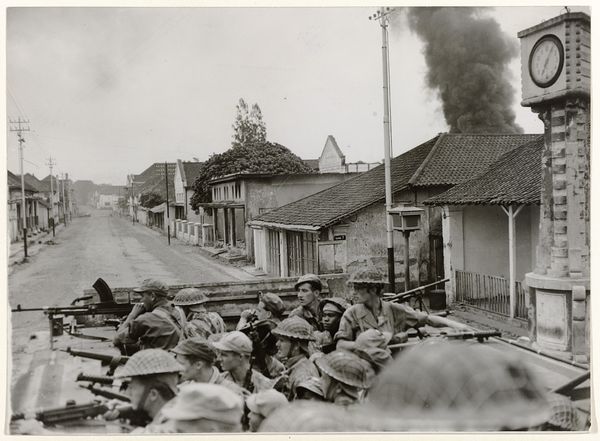
photography
#
african-art
#
landscape
#
photography
#
postcolonial-art
#
realism
Dimensions: height 5 cm, width 5 cm
Copyright: Rijks Museum: Open Domain
Editor: Here we have David Ketel’s photograph, "Busan een dag na de brand," taken between 1951 and 1953. It's a striking image; the immediate aftermath of devastation rendered in rather beautiful, albeit muted, colors. What story do you see in this piece? Curator: This photograph, rendered in the style of realism, is steeped in the complicated history of postcolonial art. It offers an entry point to discuss the far-reaching impacts of the Korean War, often overlooked in Western narratives. We see not only physical destruction, but also, I suggest, the symbolic dismantling of identity and community in the face of geopolitical conflict. Who do you think these men are? And what does the backdrop of Busan reveal? Editor: I think they might be soldiers; there are too many of them and the setting feels chaotic. Behind them you can see, in hazy tones, the remnants of Busan, smoke still rising. It makes me wonder what impact that had on the citizens? Curator: Precisely. Ketel's lens captures more than just a landscape of destruction. It subtly exposes the ways war disproportionately impacts marginalized communities. The muted tones underscore the erasure inherent in such devastation, obscuring individual stories beneath the rubble. Can photography ever truly capture such lived experiences? Editor: That's a sobering thought. I suppose there's always a layer of interpretation or even abstraction. This photo presents a scene that is hard to fully comprehend. The figures appear stuck, almost motionless, amidst this chaotic landscape. Curator: And perhaps that paralysis reflects a broader struggle within postcolonial societies to rebuild and redefine themselves after immense trauma, challenging the viewer to confront the uncomfortable realities of war's long shadow. Editor: Seeing the scene through this postcolonial lens definitely shifts my understanding of the photo. It’s more than just a landscape; it is deeply entwined with identity, community and impact of power structures on society. Curator: Precisely. I think Ketel's photograph functions as a quiet testament to that complexity.
Comments
No comments
Be the first to comment and join the conversation on the ultimate creative platform.
